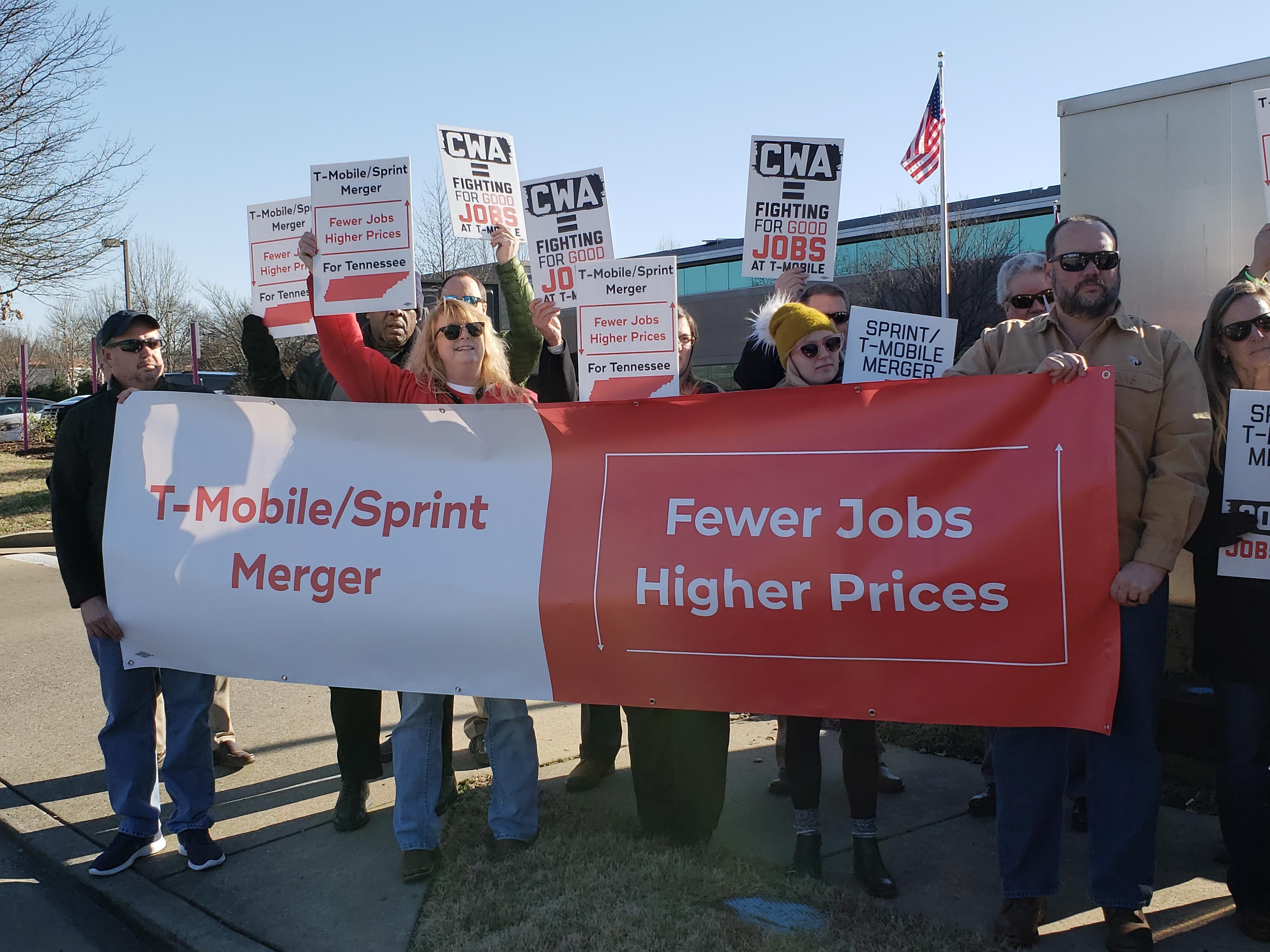CWA President Chris Shelton: “Trusting Sprint and T-Mobile with American jobs
is like trusting a vampire at a blood bank”
Washington, D.C. - During today’s U.S. House Energy and Commerce Subcommittee on Communications and Technology hearing on the T-Mobile/Sprint merger, witnesses raising concerns about the proposed merger offered detailed and extensive documentation and analysis, while merger supporters relied on vague and unsubstantiated claims.
Chris Shelton, President of the Communications Workers of America (CWA), delivered testimony during the hearing that concluded as follows: “30,000 fewer jobs. Lower wages by as much as $3,000 per year. Disproportionate harm to low-income communities. Higher prices for all consumers. All to help a state-owned German company and a Japanese billionaire make more money. Members of the Committee, that is not in the public interest.”
President Shelton’s testimony also captured why the testimony and related jobs, consumer, and rural pledges of T-Mobile CEO and President John Legere and Sprint Executive Chairman Marcelo Claure should be viewed with a skeptical eye: “Without binding and enforceable commitments – and I mean commitments that have no loopholes – such promises are just cheap sales talk and are easily broken. ...Trusting Sprint and T-Mobile with American jobs is like trusting a vampire at a blood bank. These are two of the worst companies in the United States when it comes to labor law and the treatment of workers. In recent years, T-Mobile has been charged with more labor law violations per worker than even Walmart.”
Shelton highlighted T-Mobile’s track record of buying companies and then cutting jobs, noting the aftermath and harm of T-Mobile’s 2018 acquisition of Iowa Wireless (the subject of a CWA report, Disrupting Rural Wireless, released this week). As Shelton noted, “After it acquired Iowa Wireless in 2018, it closed all iWireless call centers and more than 90 percent of its retail locations. It closed every single store in rural Iowa.”
In his opening remarks, Energy and Commerce Committee Chairman Frank Pallone (D-N.J.) noted, “As part of [the Committee’s] oversight responsibility, we must make sure that the FCC is carefully reviewing the facts and keeping consumers’ best interests in mind when deciding the fate of the merger.”
Members of Congress expressed skepticism about the companies’ claims during the hearing, pressing T-Mobile CEO John Legere and Sprint Executive Chairman Marcelo Claure on jobs, consumer prices, rural buildout, and their commitment to the federal lifeline program that helps low-income consumers access critical telecommunications services.
As Subcommittee Chairman Mike Doyle (D-Penn.), said in his opening statement, “I’ve seen a lot of mergers in this industry and others, and it’s hard to think of one where consolidation didn’t result in people losing their jobs, prices going up, and innovation being stifled.”
Read a copy of CWA President Chris Shelton’s written testimony to the U.S. House Subcommittee on Communications and Technology of the Energy and Commerce Committee
Read CWA’s detailed economic analysis on why the proposed T-Mobile/Sprint merger would eliminate 30,000 jobs (find a state-by-state breakdown of projected retail job loss here)
Read the February 2019 CWA report, Disrupting Rural Wireless, explaining why T-Mobile’s 2018 acquisition of Iowa Wireless (“iWireless”) undercuts the claim that the T-Mobile/Sprint merger would benefit rural America and the small businesses that serve as authorized dealers for T-Mobile and Sprint services
Read the December 2018 report, Labor Market Impact of the Proposed Sprint–T-Mobile Merger, by the Economic Policy Institute and the Roosevelt Institute, which found that reducing the number of wireless carriers from four to three would reduce retail wireless workers’ wages by up to $3,276 per year.
Press Contact:
Beth Allen
[email protected]
202-434-1168
Amy Fetherolf
[email protected]
202-434-1168

